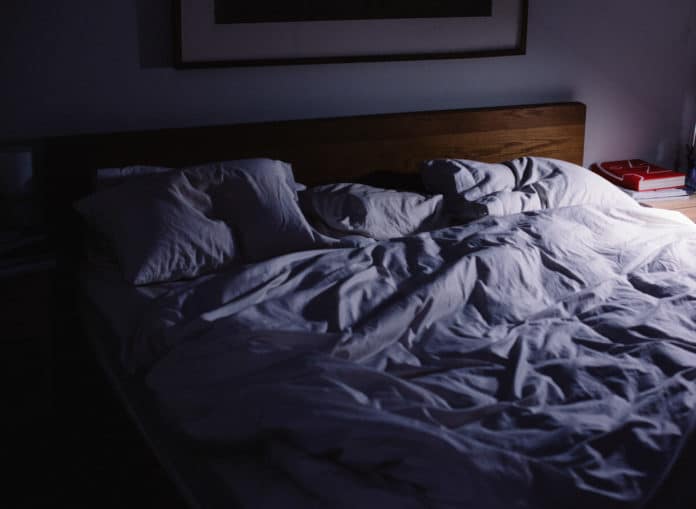We ask AGEIST Lead Science Writer, Mike James about this often misunderstood sleep supplement.
Let’s look at age-related decrease in melatonin. What is the deal with this?
Many clinical studies have found a decrease in melatonin levels with age. However, a few studies have failed to find this age-related decrease. The decrease in melatonin levels may correlate to poorer sleep quality observed in the elderly. The mechanism for this decrease is unknown.
I have heard it is often associated with older people waking up around 3 am for an hour. Thoughts?
At least one of the studies found the greatest decrease in melatonin levels in the early morning hours (when levels normally peak). This could account for early-morning insomnia in older folks.
I started taking 300mcg of 6-hour timed-release nightly. I sleep straight through 8 hours. It’s a hormone — any issues with regular use? Will my natural melatonin system get lazy?

A study was conducted to look at changes in endogenous melatonin levels (melatonin secreted by the pineal gland) after subjects stopped taking oral melatonin after 12 months. This study found that there were no changes in endogenous melatonin levels. These results indicate that there was no alteration in normal melatonin secretion.
For melatonin, as with most supplements (or medications), more is not better. Use of the minimum effective dose is ideal to lessen the chances of side effects.
What else does melatonin do? What else is it involved in besides sleeping?
Some small clinical studies have indicated that melatonin may be beneficial as an adjunct to cancer care. There are also some preliminary findings that suggest melatonin may be beneficial in Alzheimer’s disease and amyotrophic lateral sclerosis (ALS or Lou Gehrig’s disease).
Why is it regulated in Europe but not in the US?
In the US, melatonin is considered a dietary supplement and, therefore, is not subject to the same regulations that govern prescription drugs. In many countries in Europe, low doses of melatonin are considered dietary supplements, but higher doses are considered medicines. Some countries regulate all melatonin products as prescription drugs.
I’ve heard that the quantity/quality of it varies greatly. How does one choose?
A study conducted in 2017 by a group of Canadian scientists showed that actual melatonin content of 71% of the 30 melatonin products they tested were not within 10% of their labeled strength. Labeled strength plus or minus 10% is the standard for pharmaceutical products. The FDA is now requiring that dietary supplements be manufactured under Good Manufacturing Practices (GMPs). These practices provide stringent guidelines for the manufacturing, packaging, labeling, and storage of nutritional supplements.
I would look for a product that is USP (United States Pharmacopeia) verified. This means: 1) that the product contains the material on the label in the specified amount, 2) the product does not contain toxic by-products of the manufacturing process, 3) the product was manufactured according to GMPs, and 4) the active ingredient will be released from the product and be available to be absorbed into the body under specified conditions.
What does melatonin do?
Melatonin is a hormone secreted by the pineal gland, a small endocrine gland located near the center of the skull underneath the brain. Melatonin is involved in the regulation of sleep-wake cycles (circadian rhythms). Darkness triggers melatonin secretion. Melatonin levels peak in the wee hours of the morning. Melatonin secretion generally decreases with age. Melatonin has been tested for a number of conditions but for today’s discussion we will focus on the effects of melatonin on sleep.
How was melatonin discovered?
Melatonin was first isolated in 1958 by a Yale University physician, Aaron B. Lerner. Lerner named melatonin for its ability to reverse the skin darkening effects of melanocyte-stimulating hormone in frogs. In the 1970s, melatonin levels in blood were found to vary with exposure to light and dark and to play a role in sleep-wake cycles. Melatonin secretion by the pineal gland is triggered by cells in the retina (at the back of the eye) when these cells are exposed to darkness. Light entering the eye reacts with these cells to decrease melatonin secretion.
Does melatonin really help with insomnia?
The short answer is yes and no. Melatonin has been shown to help with certain types of sleep disorders: delayed sleep phase disorder, jet lag and shift work disorder.
The best way to describe delayed sleep phase disorder is a sleep pattern similar to that of most college students on a weekend: staying up late and sleeping late the next morning. The crucial difference is, sleep phase disorder is not voluntary and it happens almost every day. Staying up to 2 am and sleeping until 10 am is not conducive to the everyday responsibilities of most people. Melatonin has been shown to be effective in normalizing the sleep-wake patterns in people with delayed sleep phase disorder.
Melatonin has also been shown to be effective in preventing and treating jet lag. The effects of melatonin are greater if more than five time zones are crossed and if the direction of travel is eastward rather than westward.
There is also some evidence that melatonin may improve the quality and duration of daytime sleep in people with shift work disorder (sleepiness at night and wakefulness during the day for folks who work at night). Nighttime sleepiness (during their normal awake time) was not improved with melatonin.
The clinical data for chronic insomnia, the more common condition, is less clear. Some studies have shown a modest benefit with melatonin: a small decrease in the time to fall asleep (~7 minutes) and a slight increase in sleep time (8 minutes). The American Academy of Sleep Medicine does not recommend the use of melatonin for sleep onset or sleep maintenance insomnia. Their clinical guidelines note however, that there is a low risk associated with taking melatonin.
What are the side effects of melatonin supplementation?
Many clinical trials have noted an absence of major adverse effects with melatonin. Some of the less common side effects reported were daytime sleepiness, headache, bedwetting, dizziness, nausea, insomnia, nightmares and transient depression. Melatonin can interact with a number of drugs, especially those with sedative effects, so consult your pharmacist prior to initiating melatonin therapy.
Should I take it?
Bottom line: If you have one of the three conditions described above (delayed phase sleep disorder, jet lag or shift work disorder) melatonin certainly seems to be a viable option. If you have chronic insomnia, the benefits are not clear-cut, but the risk is low. However, if you have insomnia, and melatonin is working for you, there is little risk in continuing its use.
What is the recommended dose for melatonin?
Low doses of melatonin appear to be effective for jet lag (0.3-0.5 mg). The other uses for melatonin may require higher doses up to 5 mg. No clear benefit has been shown for increasing the dose above 5 mg. Doses over 5 mg are associated with a higher incidence of side effects (residual drowsiness the following day and headache).
When should melatonin be taken?
For shift work disorder, melatonin should be taken 30 minutes prior to intended sleep time. For delayed sleep phase disorder, melatonin should initially be taken six hours prior to intended sleep time. When the desired shift in sleep time is achieved, melatonin should be taken two hours prior to sleep time. For jet lag when traveling eastward, melatonin should be taken after dark 30 minutes prior to intended sleep time. Dosing should continue for four days. If you are traveling westward, melatonin is usually not required on the first day. Then, if needed, melatonin can be taken 30 minutes before intended sleep time for the next four days.
It seems like a no brainer, but a note of caution should be clearly stated. Since melatonin is intended to induce drowsiness and sleep, it should not be taken before any activities requiring attentiveness and/or concentration, especially driving.
Read here Mike James on NAD+ and longevity
Read here Mike James on Metformin and longevity
Read here David’s sleep routine
SELECTED REFERENCES:
Zeitzer, JM et al. Do plasma melatonin levels decline with age? Am J Med 107:432-436 (1999). https://doi.org/10.1016/S0002-9343(99)00266-1
Wurtman, R. Editorial: Age-related decreases in melatonin secretion—Clinical consequences. J Clin Endocrinol Metab 85: 2135-2136 (2000).
Lemoine P, et al. Prolonged-release melatonin for insomnia – an open-label long-term study of efficacy, safety, and withdrawal. Ther Clin Risk Mngmt 7:301-311 (2011) https://doi.org/10.2147/TCRM.S23036
Vural, EMS, van Munster, BC and de Rooij, SE. Optimal Dosages for Melatonin Supplementation Therapy in Older Adults: A Systematic Review of Current Literature. Drugs Aging 31: 441-451 (2014). https://doi.org/10.1007/s40266-014-0178-0
Erland, LAE and Saxena, PK. Melatonin natural health products and supplements: Presence of serotonin and significant variability of melatonin content. J Clin Sleep Med. 13:275–281 (2017). http://dx.doi.org/10.5664/jcsm.6462
Chu, W. Side effects prompt French authorities to issue melatonin supplement warning. Nutraingredients.com 24Apr2018 accessed 4Apr2019. https://www.nutraingredients.com/Article/2018/04/23/Side-effects-prompt-French-authorities-to-issue-melatonin-supplement-warning?utm_source=copyright&utm_medium=OnSite&utm_campaign=copyright



